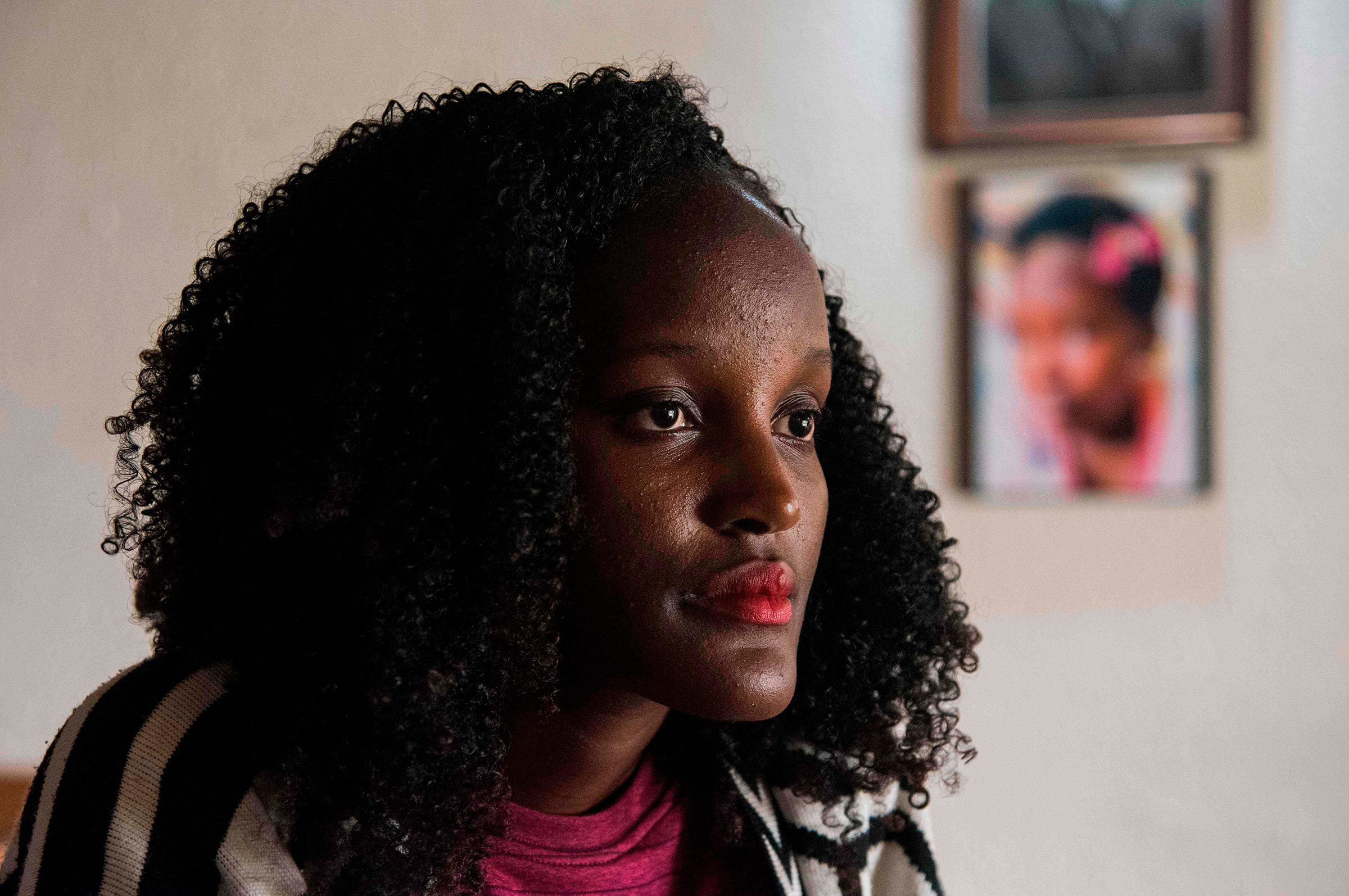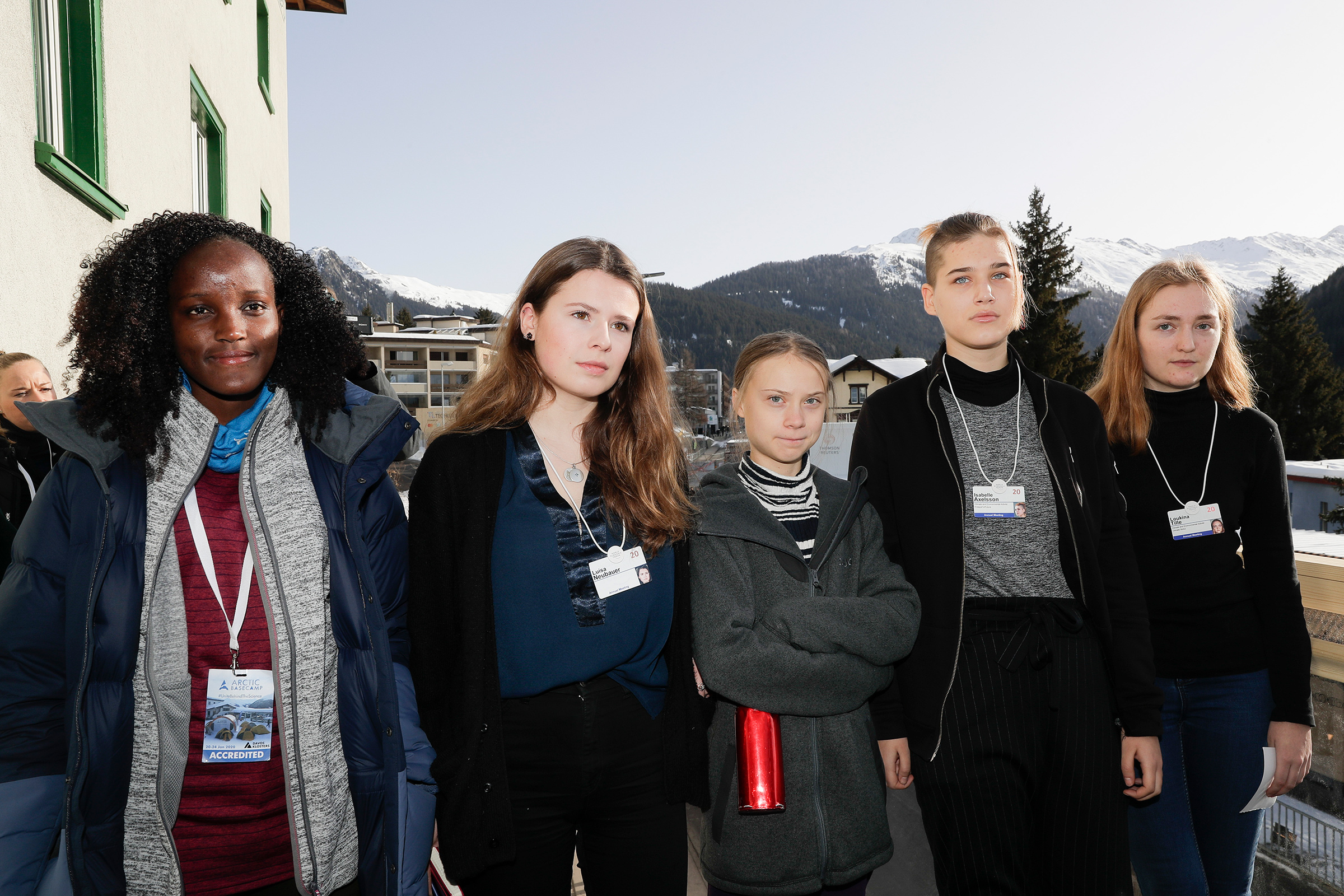Concerned about her country’s rising temperatures, Ugandan climate activist Vanessa Nakate, 23, spent months protesting alone outside the gates of Parliament in Kampala. Her Rise Up Movement seeks to amplify voices from Africa.
The work you’re doing is really teaching all of us because, as you know more than anyone, the conversation about the climate crisis has been very limited to a few voices. How did you get involved?
Before my graduation, I started carrying out research to understand the challenges that people [in my community] were facing, and I was really surprised to find that climate change was actually the biggest threat facing humanity right now. I realized every part of my country, Uganda, is affected by the climate crisis: when you go to the north, the people are suffering with long dry spells; when you go to the eastern part of the country, they’re suffering with landslides and floods. I decided that I had to become a voice in the climate movement and try to get justice.
Often you hear people are going hungry because of conflict or bad governments. But it’s often linked, as you point out, to climate.
Some of the conflicts arise from shortages in resources. For example, Lake Chad, in Africa, has shrunk to a tenth of its size in just 50 years. The population keeps growing. So there is definitely going to be a struggle for resources. And this will disrupt the peace in the area. When you look at the root of all of this, sometimes it starts [with] climate change.

Climate activism is not easy in many places, but you’re in a place where you could be arrested. You are really very courageous to do what you do.
It is not easy to go out there, especially in the beginning when I was doing these strikes by myself. My family didn’t really understand what I was doing. Most of my friends found it very, very weird. But later on, many of them started understanding why I was doing this. And some of them decided to get involved.
You’re not only speaking out and raising awareness, but you’re also looking for practical solutions, [working] with young people [and] schools.
I decided to start a project that involves the installation of solar energy and institutional stoves in schools. We need a transition to renewable energy, and many of these schools are in the rural communities, and they can’t afford the solar panels or stoves and all the costs that are involved in the installation. They helped to reduce the amount of firewood that these schools use in a term. For example, if a school is to use five trucks of firewood, they use two trucks of firewood with the stove, hence reducing the amount of firewood used. And it’s also a learning experience for the students, teachers and parents.
I know you’re passionate about the effects of [climate change] on girls. And with so many girls out of school [because of the pandemic], things are, sadly, very dangerous.
I have seen it especially in this period of time that more girls got pregnant during this lockdown. And it is really heartbreaking to see how vulnerable the girl child is. It’s very, very, very disturbing. Women are the ones who put food on the table. They provide all these things for their families. And yet in a disaster, they suffer the most. In my country, they never allowed girls to climb trees, mainly because it would take their dignity and values, as we were told. But then during a flood, the fastest way to survive, if you cannot swim, or if you cannot escape, is by climbing a tree until help comes. And that makes me realize that women are really affected the most in the climate crisis. We could not get climate justice without addressing the challenges that women are facing in their daily lives.
I’m living in the U.S., and there’s a lot happening with Black Lives Matter. Would [you] speak about the inequality that you see when it comes to the way these global issues are handled?
This inequality, of course, starts from the kind of system that we are in. It is the system that needs to be completely shattered. Because if we continue in this kind of system, we are continuously going to see inequalities, and we are going to see the most affected people continuously being traumatized, continuously being destroyed and being left with nothing. In regards to Black Lives Matter, when I found out about that, it was very, very heartbreaking and very disturbing to think that there are actually people out there who are suffering terrible, terrible actions of racism. It is something that I experienced to some extent, but it wasn’t as deep as what is happening in the States. I remember in January I happened to be cropped out of a photo with other climate activists, and to me that was a form of racism, and it felt like I had been robbed of my space. And I wasn’t the first. This is continuously going to happen unless you put an end to a system that promotes white saviorism. If we don’t address the issue of racial justice, we won’t be able to get climate justice. So every climate activist should be advocating for racial justice because if your climate justice does not involve the most affected communities, then it is not justice at all.

Are there ways we need to change our education systems or ways we can further educate people about Africa?
I think what people really need to first understand is that Africa is not just a country. It’s actually a continent with 54 countries. I remember the history that we learnt about [in school], and it talked so much of slavery and all that. I think that that is a narrative that needs to change. We don’t need to learn about all that cruelty that our people went through, because to me it completely lowers your value as a person. I think African children or any other children should be told about the power that lies within Africa. The African continent is not just about the history of slavery. It’s about the young people who grew up and became doctors, who became professionals in their own careers. The other thing they need to know: that when an African voice speaks, then it’s really an important matter, because for a very long time, we have [had so] few voices coming out of the African continent that are amplified. But [so many others] never get a chance for their stories to be heard. I personally believe that every person who demands justice or advocates for change in their community, they have a story to tell. And I believe that their story has a solution to give. People need to understand that the African people have solutions that will change the world.
This interview has been condensed and edited for clarity
More Must-Reads from TIME
- Cybersecurity Experts Are Sounding the Alarm on DOGE
- Meet the 2025 Women of the Year
- The Harsh Truth About Disability Inclusion
- Why Do More Young Adults Have Cancer?
- Colman Domingo Leads With Radical Love
- How to Get Better at Doing Things Alone
- Michelle Zauner Stares Down the Darkness
Contact us at letters@time.com